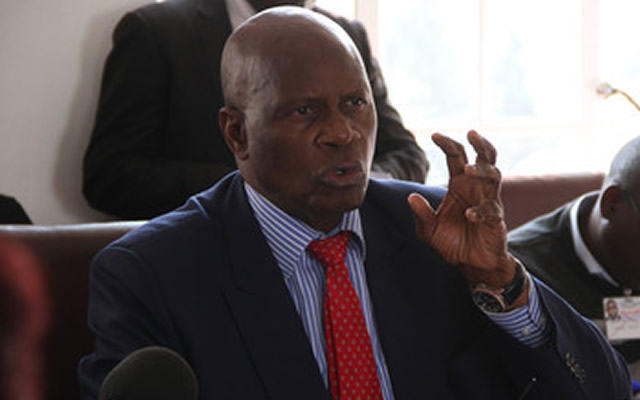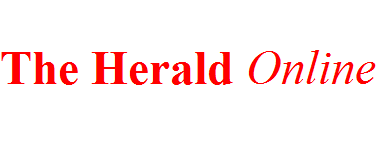Why should Govt tax knowledge?

Stanely Mushava Literature Today
The value of knowledge, chiefly its facility to maximise the human potential, is geographically agnostic. Knowledge is the foremost resource for any economy, and failure to access, utilise and regenerate it is often the difference between power and poverty. Fareed Zakaria’s 2015 book, “In Defence of a Liberal Education”, assigns the future to gamechangers who can synthesise, process and convert knowledge to power.
It will take the optimal utilisation of knowledge for Zimbabwe’s startup generation to build the country into an economic powerhouse. Like most amply endowed developing countries, we are just pages away from prosperity. Tragically, the Ministry of Finance made knowledge an elite preserve when it gazetted 40 percent import duty on books on September 1.
The Zimbabwe Revenue Authority (Zimra) has been enforcing the controversial duty regime over the past four weeks. Culture enthusiasts worry that levy-ing books could force a significant mark-up on educational material and creative content. In terms of the newly incepted provision, Customs and Excise (Tariffs) (Amendment) Notice 2015 (No. 19), book imports are now being charged 40 percent duty and $1 per kilogramme.
Folding up the duty-free structure in his Mid-Term Fiscal Policy Review, Finance Minister Cde Patrick Chinamasa argued that the tariff would incentivise the revival of the local book sector. The minister proposed the measure as a means to “avail the local industry with an opportunity to invest into the requisite machinery, thereby reducing dependency on imports”.
Tariff reviews were generally motivated by the need to curtail non-essential imports, avert de-industrialisation and troubleshoot the currently obtaining unsustainable trade balance. However, objections have flared up from various cultural quarters, with critics arguing that Treasury cannot classify books with luxurious commodities or enhance revenue by increasing the already high cost of education.
Moreover, the duty regime inevitably undermines Minister Chinamasa’s pledge in the Mid-Term Fiscal Policy Review Statement to facilitate “inclusive and equitable quality education and promote life-long learning opportunities”. Higher Education Minister Prof Jonathan Moyo has already called for the urgent scrapping of the duty, noting that the local industry currently has no capacity to meet the country’s educational requirements.
He also pointed out that the new duty regime breaches the UNESCO Treaty of 1950 Article 1 (a) and (b) to which Zimbabwe is a signatory. Parties to the instrument are obliged not to apply customs duty or other charges on books and educational material. “Your urgent redress of the anomaly leading to restriction in accessing textbooks would be appreciated,” Minister Moyo wrote to his colleague last week.
Booksellers, publishers, writers, librarians and lecturers have expressed concern that the new tariff will force prices of books up, prejudicing students and killing business in one blow. Gramscol Books director Tafadzwa Sandura told Literature Today that the import duty will increase the cost of doing business, and the mark-up will be ultimately saddled by schools, universities and colleges.
While most of the prescribed educational material from Early Childhood Development (ECD) to Ordinary Level is locally produced, higher learning is principally powered by internationally produced texts. Sandura said there can be alternative incentives for encouraging the production of indigenous content without limiting exposure to international best practice.
“When it comes to knowledge, there are really no frontiers. As much as it is imperative to be masters of our own content, discouraging access to knowledge generated outside the country can only be self-defeating,” he said. Zimbabwe is light years behind global science and technology powerhouses. Our startup generation stands to benefit from exposure to and localisation of the knowledge that built those economies.
Curtailing access to educational material will only disempower us and perpertually weigh us down to the base of the pyramid. Most university titles currently range between $70 and $120 in Harare. In the worst case scenario, the impact of the new duty regime, likely to be felt as bookshops restock towards the end of the year, will revise the range to approximately $100 to $170.
Bheki Jakobe Ncube, an academic with the National University of Science and Technology (Nust), said Treasury has initiated an extinction phase for a whole generation of thinkers. “While we agree that the Government needs money desperatetly, there are other ways getting it such as reducing Government expenditure and levying non-essential commodities like beer rather than imposing duty on books,” Ncube said.
“Our university (Nust) library is already understocked and individual lecturers make up for the deficit by buying books from international booksellers. With this duty, we are bound to produce ‘quarter-baked’ graduates,” he said. Weaver Press publisher Irene Staunton said the duty on books will be a strong disincentive to publishers, booksellers and libraries importing books.
“Zimbabwean authors are increasingly first published outside the country, not because they are disloyal to local industry, but because the market and the opportunities are much greater, and they rely on local publishers and booksellers to import their books for readers at home,” Staunton said.
“If the tax is not reversed, their titles will also become unavailable because the costs of importing are too high,” she said. Harare City Library trustee Roger Stringer described the new duty as illegal in view of Zimbabwe’s commitment to the Florence Agreement which enjoins signatories to undertake not to apply customs duty on books and other educational, scientific and cultural material.
“I, therefore, hope that Minister Chinamasa will rectify this error as soon as possible so that Zimra will immediately be able to clear consignments of books that are presently held up at Customs,” Stringer said. NACZ director Elvas Mari said Treasury must encourage creativity by removing duty on all equipment used to produce works of art.
“In the literary sector, we would like to see duty-free importation of paper, printing equipment and ink to enable local publishing to flourish,” Mari said. “Taxing finished products like books could then be introduced when the local publishing industry has the capacity to produce books for Zimbabwean market. Under the current environment duty on books is catastrophic for the educational sector as well as reading culture of Zimbabwe,” he said.
Zimbabwe Writers Association secretary-general and University of Zimbabwe lecturer Memory Chirere criticised the duty as insensitive to the scarcity of books in libraries across the country. “You find that in some schools, colleges and universities, only the teacher has one required text and he or she has to climb onto the table to read out loudly to 40 to 60 students and this kind of duty becomes the kiss of death,” Chirere said.
“I do not know what this kind of duty is supposed to achieve. Such Judas dollars should weigh heavily in our pockets. 40 percent duty on books is sawing the branch we are sitting on,” he said. “Why should we feel content with such money while our children have no required texts. Actually, those who bring books into the country for schools must be incentivised, not taxed,” he said.
Budding writer Simbarashe Nyamadzawo said the new tariff is bound to work against self-published writers who work with foreign printers for the production of their work. Most self-published writers have resorted to foreign printers who charge affordable rates for self-funded bootstrap projects. Reaction to the duty regime is, however, not polemical in one direction. TheBehaviourReport.com publisher Oscaar Habeenzu believes that local titles can match internationally reputed ones given a sustainable duty regime.
“A sad perception was that the books that were written locally were not as relevant and giving a global picture better than international ones, but reality is Zimbabwe having broken many socio-economic records, possesses vast knowledge on all manner of learning, that will even create export opportunities for local authors, publishers, and booksellers,” Habeenzu said.
On a positive score, Minister Chinamasa said, in his Mid-Term Fiscal Policy Review, that “Government will collaborate with development partners, in order to ensure that printing of donated materials is subcontracted to the local industry, to the extent pos- sible. “This policy thrust is in line with practice in the region, where some countries have engaged development partners with a view to promoting local production of donated printed products,” he said.
On the whole, imposing duty on book in the current setting is unsustainable. However, Treasury’s alternative incentives for the recovery of the local book industry are visionary, and must be complemented by the production of proudly Zimbabwean educational material.









Comments